Force-Couple system
Sometime the applied point of a force-couple system is also need to be considered at a different point. When the above force-couple system at point B is to be considered at point C, both the force and couple vectors are needed to be considered.
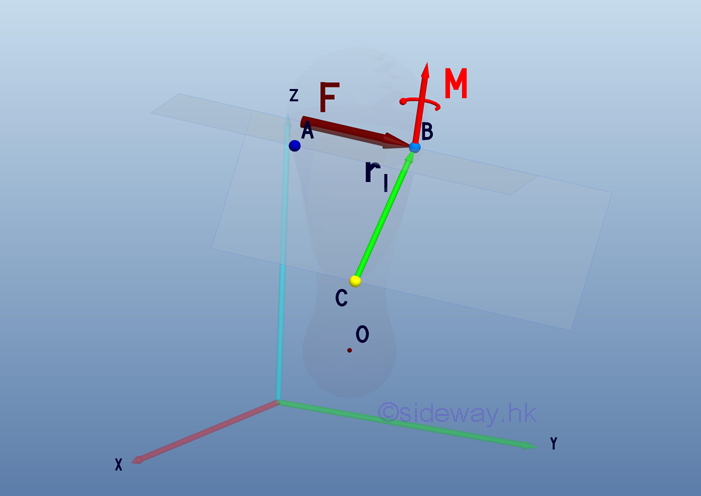
Since couple vector is a free vector, the couple vector M can be attached to point C directly without making any change. For the force vector, it can be treated as a single force transformation by attaching two forces, F and -F with magnitude equal to the applied force F at point C as before. But when the force F is applied at point B on the rigid body, the moment of the force about point C is equal to MCB .
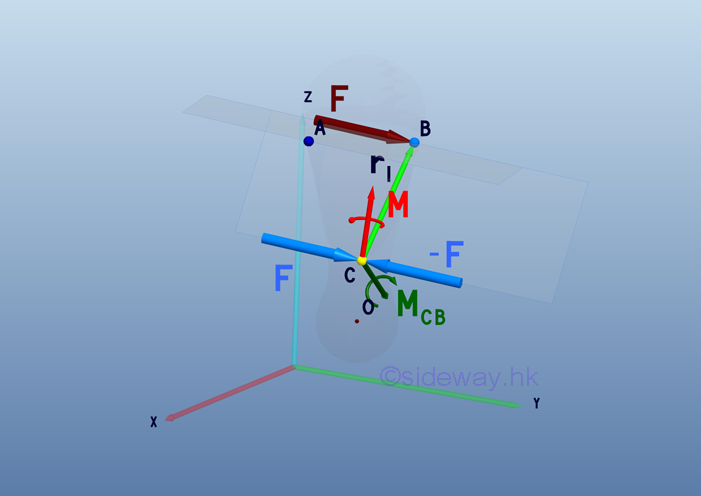
The formed force couple of moment MCB can be replaced by a couple vector M1. The couple vector M1 is a free vector and it can be located at point C for convenience. Two couple vectors are then added to form a resultant couple vector Mc.
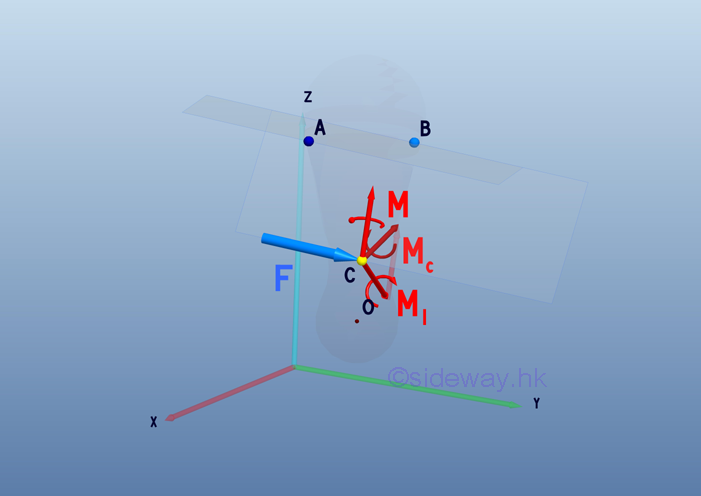
Therefore the equivalent system of a force-couple system acting at point B on a rigid body can be transformed to an arbitrary point C by moving both the force vector F and the couple vector M to point C, and adding a couple vector M1 with moment equals to the moment MCB of the force vector F at point B about point C. At which, the force vector F tend to provide the same linear motion and the resultant couple vector Mc tend to provide the same rotational motion as the force vector F at point B. The equivalent system is also force-couple system.
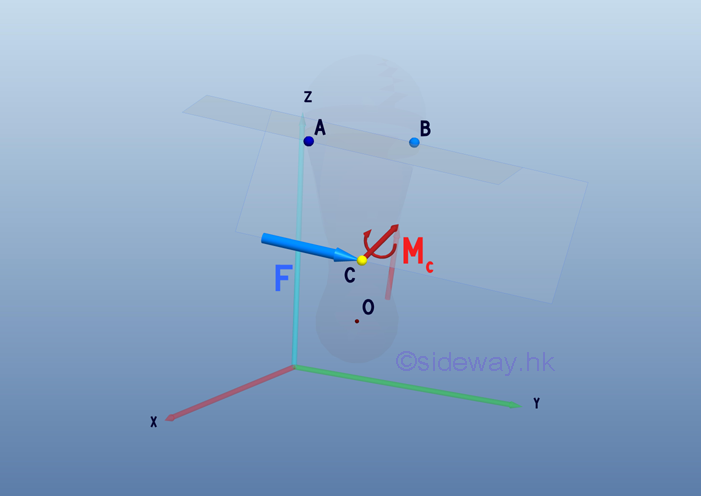
And the resultant couple or moment vector can be expressed as:
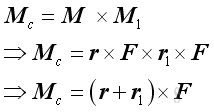
When considering the moment of force F at point A about point C, the moment is equal to MCA .
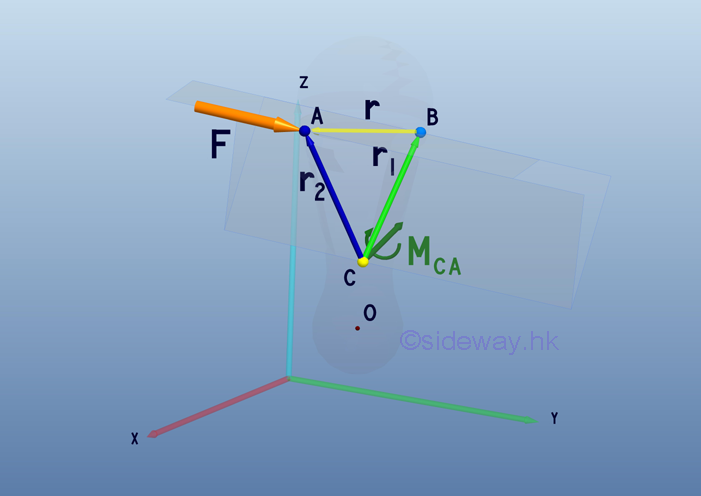
And the moment vector can be expressed as:
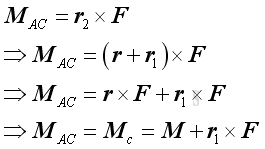
Since the force vector F can also be moved to point C as in the force transformation, the results of two system transformation are equal. Therefore the equivalent system of a force-couple system acting can be transformed from point B to an arbitrary point C by moving both the force vector F and the couple vector M to point C, and adding a couple vector M1 with moment equals to the moment MCB of the force vector F at point B about point C.
©sideway
ID: 110700011 Last Updated: 7/12/2011 Revision: 1 Ref:
References
- I.C. Jong; B.G. rogers, 1991, Engineering Mechanics: Statics and Dynamics
- F.P. Beer; E.R. Johnston,Jr.; E.R. Eisenberg, 2004, Vector Mechanics for Engineers: Statics
Latest Updated Links
- Travel Singapore Sight Central(last updated On 1/8/2026)
- Panasonic HHGTQ1001B13 LED Floor Light(last updated On 1/7/2026)
- Travel Singapore Sight West | Central(last updated On 1/6/2026)
- Travel Singapore Sight Sentosa Sensoryscape(last updated On 1/5/2026)
- Travel Singapore Sight Sentosa Resorts World Sentosa(last updated On 1/4/2026)
- Travel Singapore Sight Sentosa HarbourFront(last updated On 1/3/2026)
- Travel Singapore Sight Sentosa(last updated On 1/2/2026)
- Travel Singapore Sight Bird Paradise(last updated On 12/30/2025)
- Travel Singapore Sight Mandai(last updated On 12/30/2025)
- Travel Singapore Sight Singapore Zoo(last updated On 12/30/2025)
- Travel Singapore Sight Rainforest Wild ASIA(last updated On 12/30/2025)

 Nu Html Checker
Nu Html Checker  53
53  na
na  na
na
Home 5
Business
Management
HBR 3
Information
Recreation
Hobbies 9
Culture
Chinese 1097
English 339
Travel 38
Reference 79
Hardware 55
Computer
Hardware 259
Software
Application 213
Digitization 37
Latex 52
Manim 205
KB 1
Numeric 19
Programming
Web 289
Unicode 504
HTML 66
CSS 65
SVG 46
ASP.NET 270
OS 431
DeskTop 7
Python 72
Knowledge
Mathematics
Formulas 8
Set 1
Logic 1
Algebra 84
Number Theory 206
Trigonometry 31
Geometry 34
Calculus 67
Engineering
Tables 8
Mechanical
Rigid Bodies
Statics 92
Dynamics 37
Fluid 5
Control
Acoustics 19
Natural Sciences
Matter 1
Electric 27
Biology 1
